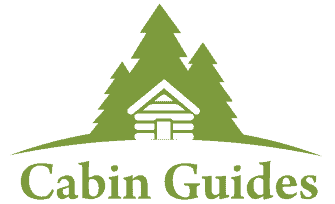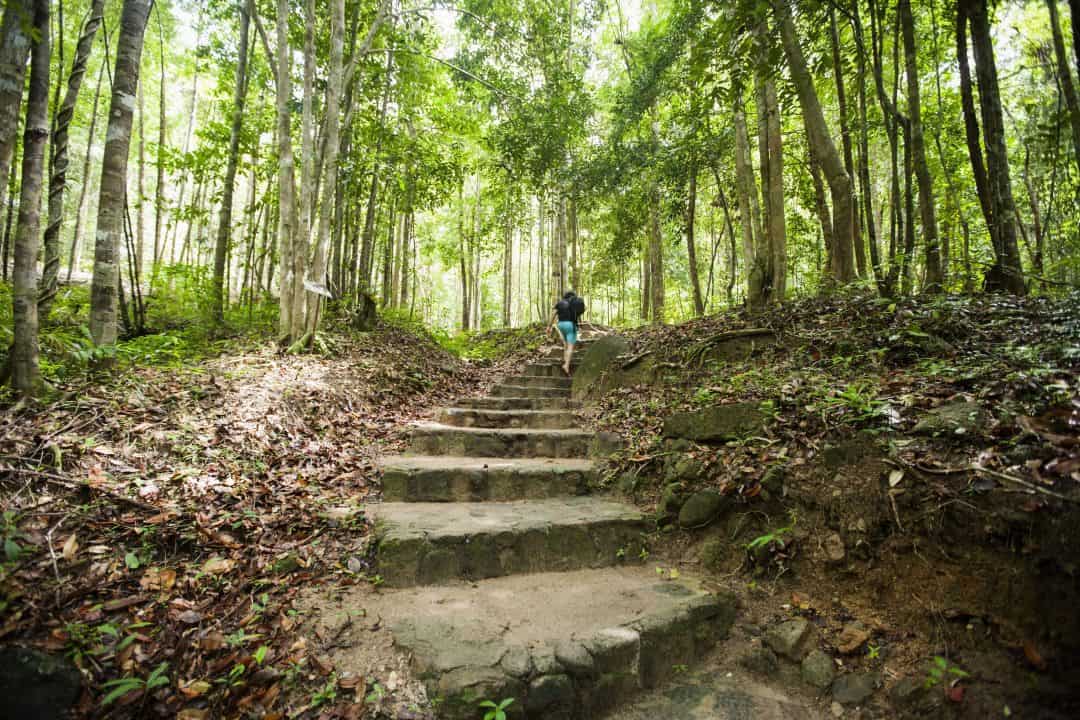The most anticipated part of staying in an off-grid location is exploring the land and taking in Mother Nature. You can be quick to head out your cabin and explore the surrounding nature, and doing so can result in you forgetting to carry out important tasks.
When leaving your cabin, there’s a handful of things you should keep in mind. To ensure that I don’t forget anything, I’ve produced an extensive list of things that I’ll need to do before heading out. I’ve tried my best to include the most important; however I may have missed a few – so feel free to let me know in the comment section.
These apply for those who are leaving their cabin for a significant amount of time and those who only intend on being away for a few hours.
Gather Food
When leaving your cabin, you should never leave food out – always lock your food away in a cabinet or a refrigerator. If you don’t intend on returning for a while, your food will spoil if not put in a refrigerator or stored appropriately. Also, you don’t want insects and other animals to get at your food, eating or contaminating it.
If you don’t plan on returning for multiple weeks, months or even years – empty out your fridge before you leave. Not only will you save power, but you’ll prevent returning to a fridge full of spoiled food. When stay in a cabin, power is a luxury so don’t abuse it. Also, returning to a nasty fridge is just going to result in more work for you, cleaning it out.
As well as your fridge, remember to empty all other storage’s to prevent food spoiling inside them. You don’t want your cabin to become infested with insects and rodents.
I often produce a list of all my food storage’s so that when I leave my cabin for a significant amount of time, I can go through the list and clear all the storage’s.
Take Inventory
It’s very important to take note of what you have at your cabin. Doing so also allows you to identify what you don’t have.
Often you find yourself low on supplies; however you don’t know what exactly you’re low on. This is when taking inventory is a big help.
I create a list of all items which I use up and require at my cabin. To name a few:
- Utensils
- Firewood
- Toilet paper
- Batteries
- Drinking water
When you leave your cabin, you need to know what to stock up on, and the list you’ve created can help you identify what you need. For example, if I’m low on plates then I’ll be able to see this and ensure that I bring more plates down to the cabin on my next visit.
This is a very important point so don’t forget to put it into practice. You don’t want to end up returning to your cabin and realize that you’re out of toilet paper and will have to use leafs for next coup le of weeks.
Turn Off All Electrics
Like I touched on briefly in the previous point, it’s very important to turn off your electrics when you’re going to be away from your cabin for a while. Wasting power is a big no-no, and should be avoided at all costs. Allowing your power to drain whilst you’re away is extremely inefficient.
You don’t have to completely unplug every appliance in your home, but you should at least ensure that nothing is left running. For example, leaving your oven plugged in isn’t a big deal as long as it’s not left powered on. In that case you won’t be wasting much if any energy.
Similarly to the previous point, I create a list of all electrical which are worth turning off when I leave my cabin. I’d recommend that you do the same; it’s very easy to forget the small things when you’re in a rush. Smaller things such as lamps can be very easy to forget as they’re not always in your face. Before you leave your cabin, run through the list and ensure that everything is turned off.
Leaving on solar powered items such as lights is not too bad as they’ll charge whilst you’re away. I often leave my outdoor lighting system on. If you want to find out more about my system, read my guide here(Insert link). I utilize a motion sensor system, so my lights only turn on when they detect movement, I’ve also got everything configured so that small animals and leafs don’t trigger the lights to turn on.
Bring everything in
If you’re leaving your cabin, even for a few hours, it’s probably a good idea to bring everything you have outside, inside your cabin. This is mainly done for security as you don’t want someone to go past and steal one of your possessions. We work hard for our stuff; therefore, we’d rather not have someone think that they can help themselves to our stuff.
It’s not only people you have to look out for, but if you’re in an area with animals – you may return to find your items dragged around the place or trashed. You may think your stuff is safe because you’re in an off-grid location, however you may find that hikers or explorers come across you cabin.
You should ensure that you bring everything anything of value inside. This includes items you may forget such as hunting knifes, axes, buckets, and torches. Just like the previous points I’ve made, you should make a list of all your valuable items that you need to bring inside when you leave.
Items such as dirt bikes and snow mobiles should be locked up if you’re not able to bring them inside your cabin. Such expensive pieces of equipment are susceptible to being stolen.
Lockup
Like I mentioned in the previous point, it’s important to lock up when you leave. Not only should you lock away your expensive equipment such as your snow mobiles and dirt bikes, but you should also lock up the actual cabin itself. Often you can find yourself in a rush to leave you cabin and almost forgetting to lock it, therefore it important add a note to remind yourself to lock-up.
You should also ensure that any external buildings such as sheds and outhouses are locked up. I often store the items which I don’t want to keep in my cabin, in my shed instead.
Locking up is vital to the security of your cabin. I have a guide in which I explain how to keep your cabin safe with a simple and inexpensive cabin security system. I’d recommend this too all cabin owners.
Set traps
If you’re living in a cabin, you’re likely to suffer from pests, this could be rodents or just insects. I always set up a ton of traps when I leave my cabin for a long time to ensure I catch as many pests as I can whilst I’m away, so I can enjoy myself as much as I can when I return. It’s extremely important to do this if you don’t want to return to your cabin after a while, only to find out it’s now been taken over by a family of rats.
I’ve got a whole article on this topic and how I manage my pest situations, check it out now. I ensure that I set-up enough traps and put out enough poison to last for a while. You can also use repellents as well.
Conclusion
As you may have noticed, a recurring theme to deal with most of these situations is to produce a list. Your memory is limited, and it’s extremely difficult to remember everything. Lists can be very useful in reminding you of the small details.
My name is Eugene Thornhill. I'm an outdoor enthusiast who loves nothing more than being one with nature. I've lived in numerous outdoor homes and even constructed my own. Living off-grid is something I'm very familiar with, more so than living in the city. For many years I've dealt with the many problems of living off-grid. It's time to pass on my knowledge through Cabinguides.


